Mozambique: President Chapo leaves for two-day visit to Malawi
No reports of government forces abuses in Tete / locals accuse Renamo – Govt

Notícias / Deputy minister of Justice, Constitutional and Religious Affairs, photographed during the hearings where locals accused Renamo of kidnapping, torturing and murdering civillians , asking for the Defence and Security Forces to stay and the 11,000 refugees in Malawi to come back to their places of origin.
The Mozambican government team sent to the western province of Tete to investigate allegations of human rights abuses by the defence and security forces has found no evidence, according to the head of the team, Deputy Justice Minister Joaquim Verissimo.
The allegations were contained in a report by the NGO Human Rights Watch, which visited the Kapise refugee camp in southern Malawi, and spoke to Mozambican refugees who said they had fled across the border because of atrocities committed by the police and armed forces in the Nkondezi area, on the border between Tete and Malawi. They spoke of summary executions, rape, and the burning of houses and barns – supposedly because the defence forces believed they were supporters of Renamo.
Speaking at a press conference in Tete city, winding up the visit by the government team, Verissimo said they had visited areas mentioned by Human Rights Watch, including Nkondezi and Nacalu in Moatize district, and Chandame and Agua Boa in the neighbouring district of Tsangano. They had spoken to community and religious leaders and other civil society organizations, and had found no evidence of the ill-treatment mentioned by Human Rights Watch.
On the contrary, said Verissimo, they found that the local population accused Renamo gunmen of persecuting, kidnapping and killing community leaders. In the areas concerned, he added, Renamo was attempting to set up a parallel administration, in line with the threats by Renamo leader Afonso Dhlakama, to take power in six northern and central provinces.
It was up to those who made allegations to prove them, Verissimo said, and so far his team had been unable to find evidence that substantiated the claims the HRW report. But, if “new facts” came to light they would be taken into consideration.
According to the report carried by the independent television station STV, journalists at the press conference pointed out that the government team had only visited two of the six villages in Nkondezi where abuses had supposedly happened.
One reporter cited details of the alleged murder of two Renamo delegates. Verissimo replied this was the first he had heard of these killings, and that such cases should be dealt with by the organs of the administration of justice.
One witness to Renamo brutality was community leader Manuel Torres. Cited in Monday’s issue of the Maputo daily “Noticias”, he accused Renamo of harassing and torturing anyone who identifies with the Mozambican state or with the ruling Frelimo Party.
“I have been a target of this harassment”, he said. “They came to my house several times and I only escaped by a miracle. In the Ndande area many chiefs and community leaders have fled. They are afraid of these men”.
Torres said the situation had improved recently with the presence of the defence and security forces in the border area. Nonetheless he was still afraid to go home. “I haven’t slept at home for months”, he said. “I sleep in the open, in the bush”.
A community leader from Kongoza village, Stefano Chinkwakwazi, declared “It’s the Renamo men who harass, torture, kill and commit sexual abuses. The defence and security forces are here to protect us. They must stay”.
He urged the refugees in Malawi to come back, because, with the arrival of government forces, “peace is tending to return to our village”.
Another Kongoza leader, Abel Siambile, believed that Renamo spies were attending the meeting with Verissimo. “As soon as the Deputy Minister goes, they will begin to harass all those who took part in the meeting”, he said. “We cannot go on living in this situation”.
The fear of Renamo is such that when the government team attempted to visit the Nhaculo community leader at his house, he refused to receive them for fear of Renamo reprisals.
During his visit, Verissimo pledged that the government will do all in its power to ensure a return to order and tranquillity in the border areas. He said the government remains open to dialogue wih Renamo, in order to ensure the disarming of the rebel movement.
“Disarming Renamo is a fundamental question”, he said. “Renamo should contribute to an effective peace, not only in Nkondezi, but throughout Tete province and in the country in general”.
The National Human Rights Commission (CNDH) is about to embark on a parallel investigation in Tete, based on the reports both from the government and from Human Rights Watch. Cited by the independent television station STV, the CNDH chairperson, Custodio Duma, said the CNDH team intended to visit all six villages in Nkondezi where abuses allegedly occurred, and also the Kapisi refugee camp to hear from the victims themselves.
Indeed, the major omission of the government report is that Verissimo’s team did not visit Kapise and speak to the refugees.


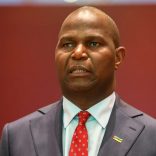
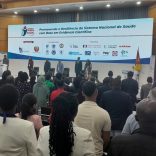
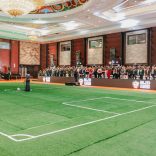
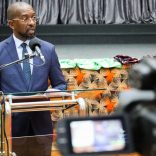

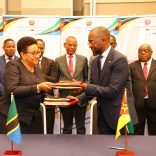





Leave a Reply
Be the First to Comment!
You must be logged in to post a comment.
You must be logged in to post a comment.